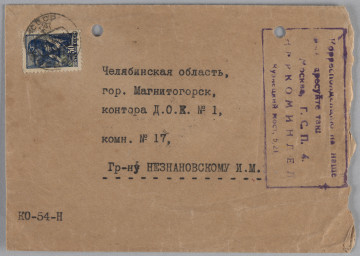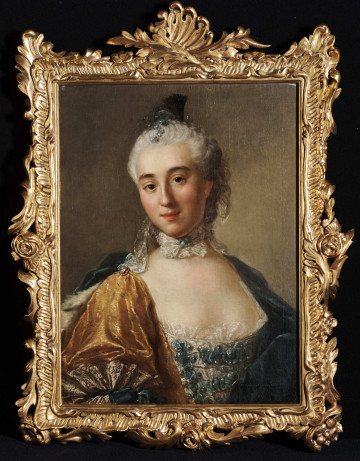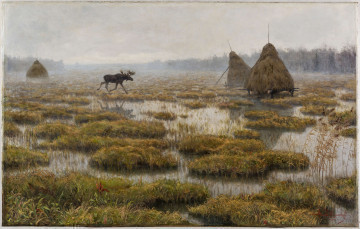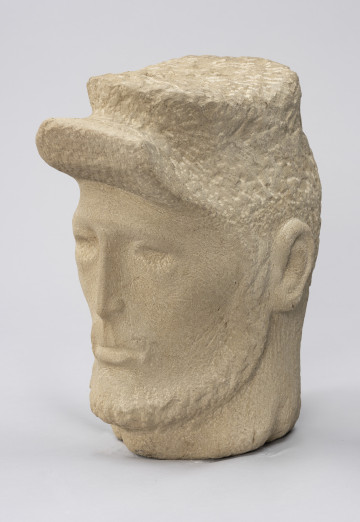
Correspondance
1940
Museum of the history of Polish Jews
The Nieznanowskis were a poor Jewish family who observed tradition; the parents spoke Yiddish with each other, and Polish with their children. The father came from Włoszczowa, the mother, Hadasa Gutman, from Przysucha. Michał Nieznanowski initially worked in a gasworks, but during the Great Depression, he lost his job and earned a living by repairing gas appliances around the houses. Unfortunately, impoverished people delayed payment and the Nieznanowskis often lacked money for the basic necessities of life. Also contributing to their difficult situation was the tragedy of their eldest daughter Pola, a talented student at the Jewish girls' secondary school oat Długa Street. She fell in love with a boy from a very rich family, who did not accept her. Pola tried to commit suicide and was saved, but her mental faculties never fully returned.
Józef (Josek) Nieznanowski, the older son, became involved with the Communist Union of Polish Youth and received several sentences for his political activities. In September 1939, he was imprisoned in Kalisz, from where he managed to escape with other prisoners and on 30 September joined his family in Warsaw. In February 1940, he was identified by the Gestapo as a communist, but before he could be arrested he fled to the territories occupied by the Soviet Union. He was accompanied by his younger brother Feliks, who at the outbreak of war was a pupil at a primary school managed by the Jewish community. As a very active and talented boy, he belonged to Haszomer Hacair, learned to swim and sang in the choir operating at the Great Synagogue. After the capitulation of Warsaw, he earned money as a newspaper man.
The Nieznanowski brothers initially ended up in Białystok. They tried to bring their parents back home, but they did not want to leave their poor possessions to the mercy of fate and travel into the unknown.
The brothers then travelled deep into the Soviet Union, to Magnitogorsk, where they tried again to bring their parents back home. In Magnitogorsk, Józef worked on building structures, while Feliks was assigned to a brigade building coke ovens, with which he was soon sent to Chelyabinsk, then to Novosibirsk and Yekaterinburg (Sverdlovsk), and then, after the Red Army had driven the Germans out of the Ukraine, to Donetsk.
After the end of the war, Feliks Nieznanowski reported to the Union of Polish Patriots (see: https://sztetl.org.pl/en/glossary/zwiazek-patriotow-polskich) in Dnepropetrovsk and was identified on the basis of his school ID, which he luckily kept. It turned out that his older brother was already waiting in Moscow for the possibility of returning to Poland and soon arrived in Lublin.
In February 1946, Feliks Nieznanowski also returned to Poland. The two brothers met in Dzierżoniów in Lower Silesia (then still Rychbach). None of the family remaining in Warsaw survived.
Feliks finished officer school in Łódź and settled in Warsaw, starting a family. His older brother also moved to Warsaw, to Żoliborz, and had three children, two of whom he named Michał and Hadasa after their parents. As the third of the three children, a daughter, was harassed at school, the family left for Israel, settling in the kibbutz Carit.
Feliks Nieznanowski, on the other hand, remained with his family in Poland, despite repeated discrimination (repeated "proposals" to leave Warsaw, he was not promoted from the rank of major). When he retired, he devoted himself to social work at the Jewish Historical Institute and the Museum of the History of Polish Jews. When his older brother, who kept letters from his parents, died, Feliks Nieznanowski decided to donate them to the museum collection. He died in 2017.
Based on:
https://www.centropa.org/biography/feliks-nieznanowski#My%20family%20history, accessed 5.10.2021.
Ewa Małkowska-Bieniek
Znaleziono 16 obiektów

18th century, 2. połowa XVIII wieku
Castle Museum in Łańcut

1903
National Museum in Lublin

1958
National Museum in Szczecin
DISCOVER this TOPIC
Museum of King Jan III's Palace at Wilanów
DISCOVER this PATH
Educational path